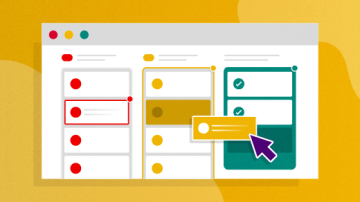Recently I was invited to present on free and open resources that are available on the web. This presentation was part of a local effort to keep our community working—sponsored by the Foster Center at St. Bonaventure University near my home. Some of the resources I shared were not open source and merely cost $0, but many of the tools were also open source.
It was interesting to see how many folks recognized the tools I mentioned. Many people are unaware that the tools they use every day are open source, and they can share them with others.
Open source browsers
Using the web requires a good browser, and Firefox is open source, which some of the folks I was presenting to were unaware of. In addition to being open source, Firefox is strongly conscious of privacy, which is a growing concern for many users. Interestingly, though, even Microsoft's new browser is based on the open source Chromium project.
Open source web privacy
Another way to protect your privacy and improve your web experience, in general, is to use uBlock Origin to block advertisements. According to their website:
uBlock Origin is a free and open source, cross-platform browser extension for content filtering—primarily aimed at neutralizing privacy invasion in an efficient, user-friendly method.
The code is GPL v. 3.0.
The Electronic Frontier Foundation (EFF) also maintains Privacy Badger, a web browser extension licensed under the GPL v.3.0. According to their Github repository, it's:
A browser extension that automatically learns to block invisible trackers. Instead of keeping lists of what to block, Privacy Badger automatically discovers trackers based on their behavior.
In addition to privacy, my presentation shared the importance of secure passwords. My audience learned about Bitwarden. Many folks had no idea how to generate secure passwords, differentiate from one website to another, and store them securely. I demonstrated how the software worked to create passwords and use Bitwarden to store those passwords in the cloud. I explained how users could access those credentials as browser plugins, desktop and laptop applications, and on Android or iOS mobile devices.
Open source messaging
I spoke of the ubiquity of text messaging but also its inherent insecurity. The audience was not aware of Signal. I have been using Signal for a couple of years and regularly encourage others to consider it as a secure messaging platform. It is easy to install Signal on Linux, macOS, Windows, Android, and iOS, and it offers excellent support documentation with detailed installation instructions for each operating system. Signal uses your existing mobile number, provided it can send and receive SMS and phone calls. The first time you set up Signal on your mobile phone, the application can search your address books for any of your contacts using Signal.
Open source office tools
No presentation on open source tools is complete without mentioning my favorite content creation tool, which is LibreOffice. Despite its popularity, many are unaware that it exists and the freedom that comes with its use. I use it every day to write articles. I use it instead of Excel, and sometimes I used it for presentations. You can download it and install it for Linux, macOS, and Windows. One of the beauties of LibreOffice is that you really own your documents. You don't need an expensive program to access them.
Open source blog builder
WordPress is my favorite blogging engine, and there are myriad ways you can use it, whether sharing your own opinions on world events, a low-cost writing platform for your students, or a web presence for your business.
Open source media repository
While creating content, you will need images that you can easily and legally share to illustrate your work. OpenClipart is my go-to. There are thousands of images available in various popular formats for inclusion in your LibreOffice documents and blog posts. In addition, you can find images that you can share with the proper attribution by visiting Creative Commons. Creative Commons offers licensing that makes sharing easier. Creative Commons is an extension of copyright that makes sharing easier. Be sure to familiarize yourself with the nuances of the licenses.
Open source video conferencing
The pandemic has changed the paradigm for conferences and meetups. Jitsi, Big Blue Button, and several others have revolutionized how we interact and learn as reported here by Chris Hermansen.
Open source educational resources
Open educational resources have liberated learning. With OER Commons, you can find content to meet your needs, from pre-kindergarten to graduate and professional degrees, and it is openly licensed so that you can use it and share it with others. Massachusetts Institute of Technology (MIT) Open Courseware is nearly all of MIT's undergraduate and graduate content offered under a Creative Commons non-commercial share-alike license. OpenStax, an open textbook initiative at Rice University, offers peer-reviewed textbooks that are openly licensed and available for free.
Open source podcast tools
Podcasts have become a great way to catch up on the latest open source news for me. Have you thought of starting your own podcast? There are a couple of great open source tools that I am familiar with that provide ways to make that a reality. Audacity is my favorite recording application. I have used it to flip my classroom instruction, record interviews, and experiment with sound effects. It is a 16-track audio editor that you can use in a variety of ways. If you have something to say or a skill to teach, you should use Open Broadcaster Software.
Linux
Finally, introduce your friends to Linux, which many of them still don't know about, and let them experience all the readily available free software.
In addition to the talk recorded and shared on YouTube, I compiled a list of links to the resources and shared them on GitHub.










1 Comment